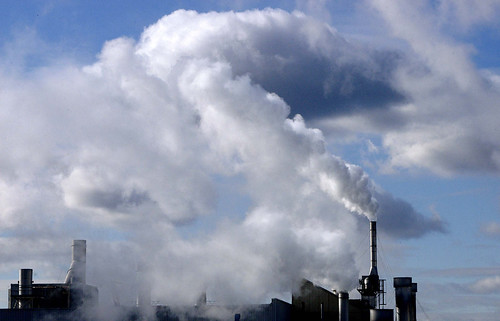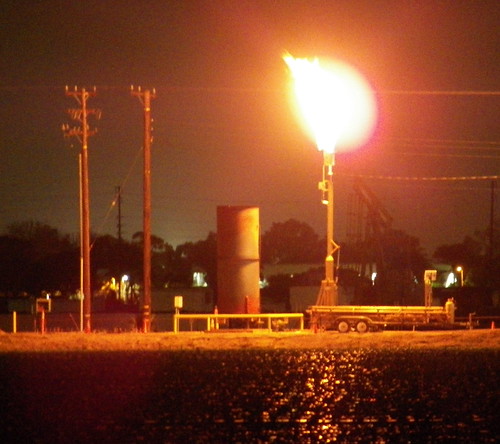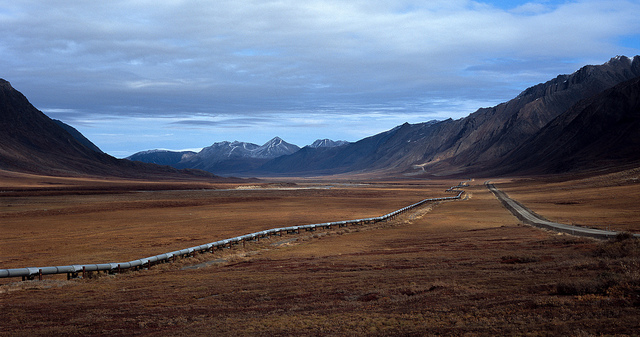The Clean Air Act (CAA) directs the Environmental Protection Agency (EPA) to define “hazardous air pollutants (HAPs)” that may pose acute health hazards, and to impose regulations to reduce those hazards. EPA requires permits for “major sources” of HAPs based on “Maximum Achievable Control Technologies (MACT),” and lesser controls for non-major “area sources.” Since the Trump Administration took office, EPA has pursued several initiatives to make it easier for sources to reclassify from “major” to “area” in order to reduce their regulatory responsibilities. For example, in January 2018 EPA ended a decades-old policy declaring that every emission source that met major source criteria at the time a MACT became effective was “once in, always in” and could not requalify as a less-regulated area source by accepting legally binding controls that reduce its “potential to emit (PTE).” (I wrote about this change here).
Read MoreAudit, Compliance and Risk Blog
EPA Proposes to Allow Hazardous Air Pollutant Sources to Reclassify From “Major” to “Area” Using Administrative Controls
Posted by Jon Elliott on Tue, Sep 10, 2019
Tags: Health & Safety, Environmental risks, Environmental, EPA, Greenhouse Gas, ghg, Hazcom, Oil & Gas
Status of Trump Administration Environmental Regulatory Rollbacks
Posted by Jon Elliott on Tue, Jul 02, 2019
Since President Trump took office, I’ve written in this space a number of times describing specific executive and regulatory initiatives to freeze or reverse environmental regulations. They’ve largely conformed with the President’s antipathy for such regulations, and his appointees’ vigor. Environmental and health advocates have challenged all these changes, continuing to yield court decisions confirming the limits of executive and administrative authority to impose changes (In January 2017 I summarized the limits on various approaches here).
Read MoreTags: Health & Safety, Environmental risks, Environmental, EPA, Oil & Gas, clean water
Bureau of Land Management Amends Methane and Waste Prevention Rule
Posted by Kathy McKinney-Tovar on Tue, Apr 23, 2019
The Bureau of Land Management (BLM) issued a final rule (the 2018 rule) on September 28, 2018 (83 FR 49184) that revised, rescinded, or replaced requirements in its “Waste Prevention, Production Subject to Royalties, and Resource Conservation” (the 2016 rule) (81 FR 83008). The 2016 rule, also known as the Methane and Waste Prevention Rule, required operators of onshore federal and Indian (other than Osage Tribe) leases to take various actions to reduce the waste of gas. The rule established clear criteria for when flared gas qualified as waste and was, therefore, subject to royalties, and also clarified which on-site uses of gas were exempt from these royalties. Prior to the 2016 rule, provisions related to venting, flaring, and royalty-free use of gas were contained in the agency’s 1979 Notice to Lessees and Operators of Onshore Federal and Indian Oil and Gas Leases, Royalty or Compensation for Oil and Gas Lost [NTL–4A]).
Read MoreTags: Hazcom, Oil & Gas, site auditing
EPA Administrator Scott Pruitt has been on a tour to publicize his efforts to get EPA “back-to-basics.” He launched the tour with a visit to a Pennsylvania coal mine in April. The agency issued a press release about that visit, which also summarized its “Back-to-Basics Agenda.” The press release summarizes the Agenda as “Protecting the environment; engaging with state, local and tribal partners; and creating sensible regulations that enhance economic growth.” The Agenda provides a convenient rhetorical framework for the new Administrator’s efforts to re-boot EPA’s activities.
Read MoreTags: Environmental risks, Environmental, EPA, Greenhouse Gas, ghg, Hazcom, Oil & Gas, climate change, tsca, clean water
SEC Tries Again To Increase Resource Extraction Issuers’ Reporting
Posted by Jon Elliott on Tue, Jul 26, 2016
The Securities and Exchange Commission (SEC) has recently republished requirements for publicly listed “resource extraction issuers” to report payments they make to the U.S. federal government or foreign governments, related to commercial development of oil, natural gas, or minerals. These requirements fulfill one of many duties assigned SEC by the 2010 Dodd-Frank Act, this one codified in a new Section 13(q) of the Securities and Exchange Act of 1934 (1934 Act).
Read MoreTags: SEC, Environmental, Oil & Gas, directors, directors & officers
Oil Companies Must Let Shareholders Vote To Expand Reporting Relevant To Climate Change
Posted by Jon Elliott on Thu, Apr 14, 2016
In recent years, activist investors have sought to expand climate-related reporting by publicly traded companies – directly by pressuring the companies, and indirectly by petitioning the U.S. Securities and Exchange Commission (SEC) and other regulators to require additional reporting in periodic reports on the businesses’ status and prospects, and in annual meeting reports and proxy requests. SEC has been criticized for doing very little in response to these requests, but took potentially important actions on March 23.
Read MoreTags: SEC, EHS, Oil & Gas, directors, directors & officers
Divided Supreme Court Vacates EPA Fossil Fuel Power Plants Rule
Posted by Jon Elliott on Tue, Jul 28, 2015
Late in June the U.S. Supreme Court issued its latest ruling on the Environmental Protection Agency (EPA) efforts to implement the Clean Air Act (CAA). This time a sharply divided Court voted 5 to 4 to vacate EPA’s attempt to regulate hazardous air pollutant (HAP) emissions from fossil fuel-fired electricity power plants. The justices split over when during a decade-spanning, multi-phase rulemaking did CAA require EPA to calculate the costs and benefits of regulation—the Court majority ruled that this calculation should have occurred in the first round, rejecting EPA’s decision to do so later in the rulemaking sequence.
Tags: Environmental risks, Environmental, EPA, Hazcom, Oil & Gas
PHMSA Requires Advance Notice of Construction-Related Events
Posted by Allison Campbell on Mon, Oct 20, 2014
To ensure that operations at gas pipelines, gas pipeline facilities, and LNG plants and facilities are in compliance with a range of conditions, operators of such plants and facilities must provide the US Department of Transportation Pipeline and Hazardous Materials Safety Administration (PHMSA) with 60 days’ advance notice of construction-related events. This advance notice allows time for reviews and inspections to identify any potential compliance issues and avoid costly design changes or delays.
Tags: Corporate Governance, Business & Legal, Health & Safety, Environmental risks, ghg, fracking, hydraulic fracking, Oil & Gas
NTSB and PHMSA Focus on Facility Response Plans for Pipelines
Posted by Allison Campbell on Mon, Jul 14, 2014
Investigation of the 2010 spill at Marshall, Michigan, the largest on-land spill in US history, underlines the reality that a Facility Response Plan (FRP) is more than a government-required document—an inadequate document or plan can lead to environmental and economic disaster. Owners and operators of onshore pipelines must review and update FRPs every five years from the date of last submission or last approval, and whenever new or different operating conditions arise that would affect the plan. (49 CFR 194.121 Response Plan Review and Update Procedures). PHMSA recently released two Advisory Bulletins reminding operators what it requires in an FRP and listing five of the most common reasons for it to reject an FRP.
Tags: Corporate Governance, Business & Legal, Health & Safety, Environmental risks, Environmental, EHS, EPA, Greenhouse Gas, ghg, Hazcom, Oil & Gas, Transportation
News from The Bureau of Safety and Environmental Enforcement (BSEE) Press Release Issued April 3, 2014
Tags: Corporate Governance, Business & Legal, SEC, OSHA, Environmental risks, Environmental, EHS, Oil & Gas, climate change










